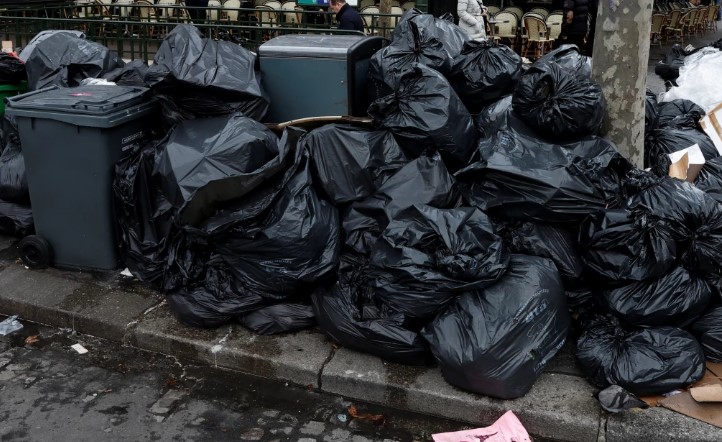Waste service providers reject Nema's biodegradable bag directive over cost concerns

The directive, issued by NEMA on April 8, requires all organic waste from households and institutions to be placed in 100 per cent biodegradable bags.
The Waste and Environment Management Association of Kenya (WEMAK), which represents waste service providers, has opposed the National Environment Management Authority's (NEMA) directive mandating the use of biodegradable garbage bags for organic waste.
The directive, issued by NEMA on April 8, requires all organic waste from households and institutions to be placed in 100 per cent biodegradable plastic bags.
More To Read
- Truck that overturned in Uasin Gishu was ferrying natural rubber latex to DRC
- Court bans eucalyptus planting near water sources nationwide
- Kenya seeks World Bank, EU support to remove toxic asbestos roofs
- Runda residents stage protest over controversial luxury housing project
- NEMA targets Sh2 billion revenue through new digital licensing system
- MPs demand safe disposal of asbestos across Kenya
NEMA's Director General, Mamo Mamo, stated that the waste must be segregated, collected separately, and transported to designated material recovery facilities.
In a statement, the association said even though it supports environmental protection, it has serious concerns about NEMA's rushed ban on plastic waste collection bags also referred to as 'black bin bags'.
It expressed concerns over the economic impact and feasibility of the new regulations, as the prices of the waste bags will rise from Sh15 to Sh83 per piece.
The Association noted that the significant increase could lead to higher consumer expenses and potential illegal dumping. They also pointed out that the decision was made without sufficient input from key stakeholders and lacked a multi-sectoral approach.
“Waste segregation, recycling facilities, and other essential systems are not in place despite the numerous forums where the waste service providers (WSPs) have raised these concerns. The increased costs will also burden consumers and may lead to illegal dumping. There is also no clear guidance available on affordable, certified biodegradable bags,” the association said.
It further claimed that the ban threatens the livelihoods in the waste sector as most people earn a living from the collection of waste.
Extend compliance period
WEMAK now wants the authority to extend the compliance period and engage all stakeholders in meaningful dialogue.
They also called on NEMA to provide clear guidance on affordable and accessible alternatives to buying biodegradable bags and invest in waste management infrastructure.
Additionally, they urged the Authority to conduct thorough assessments on biodegradable bags and invest in capacity building rather than imposing outright bans.
Following the lapse of the 90 days for the transition, NEMA has kicked off a raid on consumers who don’t adhere to the mandated use of biodegradable bags for organic waste collection.
The Authority has reiterated that the directive is in line with Section 12 of the Sustainable Waste Management Act, 2022, which requires all public and private sector entities to segregate non-hazardous waste into organic and non-organic fractions.
It also states that the segregated waste be placed in properly labelled and colour-coded receptacles, bins, containers and bags and all waste service providers to collect, handle and transport segregated waste.
The enforcement marks a shift from the use of conventional plastic bags, which were banned in 2017 under Gazette notice Nos. 2334 & 2356.
The 2017 ban included plastic carrier bags and flat bags used for commercial and household packaging, which were a significant environmental pollutant.
The aim of the government's ban on the use of plastic bags was to avoid the health and environmental effects resulting from the use of plastic bags.
Among the effects include the inability of plastic bags to decompose, thus affecting soil quality, the littering of such bags in various parts of the country, the blockage of sewerage and water drainage infrastructure, causing floods during the rainy season, and damage to ecosystems and biodiversity.
Section 145(1) of the Environmental Management and Coordination Act (EMCA) states that any person who contravenes the provision of the gazette notice shall be liable to a fine of not less than Sh2 million, and not more than Sh4 million, or imprisonment for a term of not less than one year but not more than four years or to both such a fine and imprisonment.
Top Stories Today














































